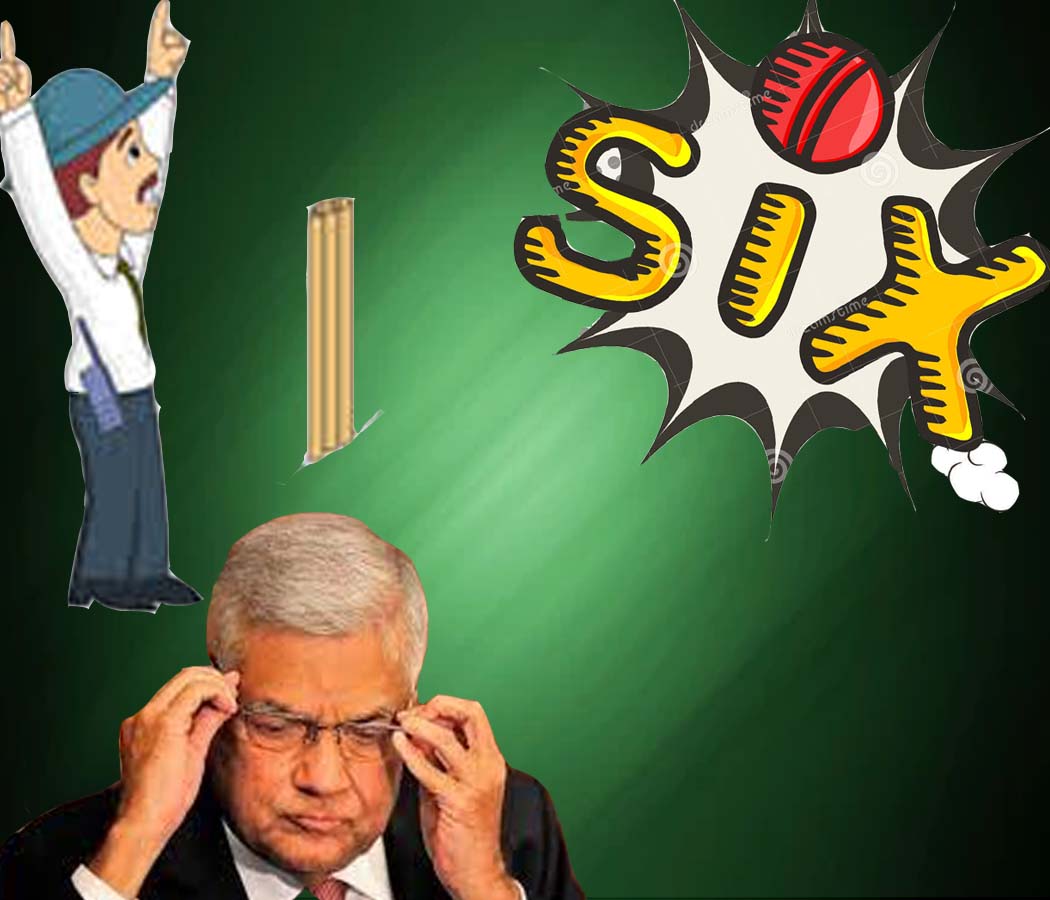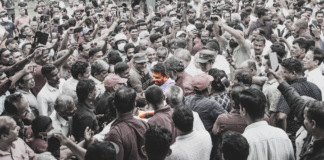• We as a nation must wish Wickremesinghe well because his actions, to some extent, will determine our immediate future. If he is to succeed though, he must change his old ways and become a statesman instead of being a politician. As much as we hope he does, we are almost certain he won’t.
• It is obvious even to those unfamiliar with the nuances of Sri Lankan politics that the current composition of Sri Lanka’s Parliament- which the SLPP still controls- does not reflect the public sentiment about that party. There was an expectation that, when the dust finally settled on Gotabaya Rajapaksa’s eviction from office, a general election is the best antidote for the current climate of political instability
Ranil Wickremesinghe has done it again. To give credit where it is due, the man whose political career was written off just months ago has returned from the political wilderness and is today the eighth Executive President of Sri Lanka.
The series of events that got him there are too well known to merit repetition. The more important question now is, can he deliver?
Wickremesinghe is where he is because the protests against Gotabaya Rajapaksa reached such humungous proportions that he had to hurriedly flee the President’s House with a few hurriedly packed suitcases, take a Navy vessel to Trincomalee and then board an Air Force flight to the Maldives. Hardly the perfect send-off.
Public resentment against Gotabaya Rajapaksa had peaked at the time of his departure. Much of that anger was also directed at Ranil Wickremesinghe. That is because the latter took on the mantle of the Premiership when Rajapaksa had his back to the wall and was near to calling it quits.
Wickremesinghe’s intervention propped up the Rajapaksa regime for a further two months during which, despite the new Prime Minister’s much vaunted expertise at ‘international relations’, the economy continued to nosedive and the gas and fuel queues got longer. He was also careful not to utter a word against the Rajapaksas, although he did crackdown on protestors against the regime.
There was some irony at the election in Parliament to choose the new President. The ruling Sri Lanka Podujana Peramuna (SLPP) nominated the United National Party (UNP)’s Wickremesinghe. The Samagi Jana Balavegaya (SJB), the breakaway faction of the UNP, nominated the SLPP’s Dullas Alahapperuma- such are the vagaries and vulgarities in Sri Lankan politics!
The cry from Galle Face Green, or ‘Gota Go Gama’ and other protests countrywide was for a new political order and, at the very least, an all-party government that reflected the aspirations of the people who were sick and tired of the hegemony of the SLPP and the Rajapaksa clan in the Sri Lankan polity.
In essence, they wanted not only Gotabaya Rajapaksa removed from office but also a change in the composition of the government and a new political order, a pathway to the abolition of the Executive Presidency and restoration of the rule of law.
A significant component of the latter is bringing those responsible for the economic collapse and for mass scale corruption and abuse of power before justice. That is what Ranil Wickremesinghe promised from political platforms in 2015 but failed to do in the four years he cohabited with Maithripala Sirisena and had the support of his own party which had a majority in Parliament then.
Can he be relied upon to do so now, when he is beholden to the SLPP for electing him and will be obliged to them for keeping him in the presidential chair? Would he dare to upset that applecart and prosecute those in the previous regime?
When he assumed duties as Acting President, Wickremesinghe was quick to promise a quick introduction of the 19th Amendment. If he keeps his word, that will leave him with little residual power and entrust most of it to his Prime Minister (who, at the time of writing, is likely to be Dinesh Gunawardena)? Would he do so now, when he has reached the pinnacle of power after spending forty-five years in politics, most of it languishing as our longest serving Leader of the Opposition?
It is obvious even to those unfamiliar with the nuances of Sri Lankan politics that the current composition of Sri Lanka’s Parliament- which the SLPP still controls- does not reflect the public sentiment about that party. There was an expectation that, when the dust finally settled on Gotabaya Rajapaksa’s eviction from office, a general election is the best antidote for the current climate of political instability.
Such an election would usher in a Parliament which would reflect public opinion in the country more accurately. However, it is not a secret that parliamentarians from the SLPP do not want a general election now because that would signal the end of the political careers of a significant number of them. It is reported that Wickremesinghe provided an assurance that a general election would not be called, to secure the support of SLPP MPs. Will he now bow to public opinion instead and call a snap poll?
Another important aspect emerges from Wickremesinghe’s victory on Wednesday. He secured 134 votes, just sixteen votes shy of a two-thirds majority. That was much more than what was predicted. As Janatha Vimukthi Peramuna (JVP) leader Anura Kumara Dissanayake pointed out in his concession speech, many groups of so-called ‘independents’ had publicly pledged their support to Dullas Alahapperuma and the sum of these group would have well exceeded the required 113 votes. However, Alahapperuma secured only a mere 82 votes.
That can only be possible if, during the secret vote, some in the so-called independent groups which pledged their support to Alahapperuma voted for Wickremesinghe. Even that would not explain the nearly 50-vote margin Wickremesinghe recorded. That can only be possible if a significant number in the SJB voted for Wickremesinghe. While there are allegations of various transactions, this shift of loyalty should provide much food for thought to Sajith Premadasa.
Wickremesinghe’s next task is to form a Cabinet. In his victory speech, he extended an invitation to the leaders of opposition parties to join him in resurrecting the nation but stopped short of requesting them to obtain Cabinet portfolios. However he is likely to do so, not because he is a great democrat but because that could effectively divide the already fragmented opposition.
Premadasa has already declared that the SJB will play no role in a Cabinet headed by Wickremesinghe- just as much as it did not wish to be part and parcel of a Cabinet headed by Gotabaya Rajapaksa. Nevertheless, Wickremesinghe will try to divide and rule. For instance, if he invites SJB stalwart Harsha de Silva as Finance Minister, will De Silva be able to refuse his former leader and forego the offer of a coveted portfolio?
We as a nation must wish Wickremesinghe well because his actions, to some extent, will determine our immediate future. If he is to succeed though, he must change his old ways and become a statesman instead of being a politician. As much as we hope he does, we are almost certain he won’t.





